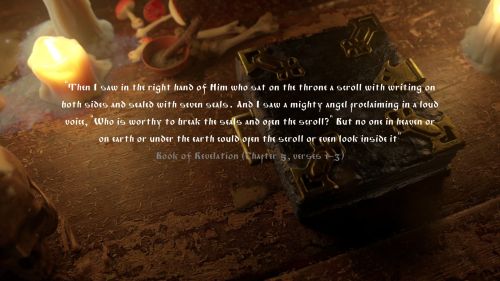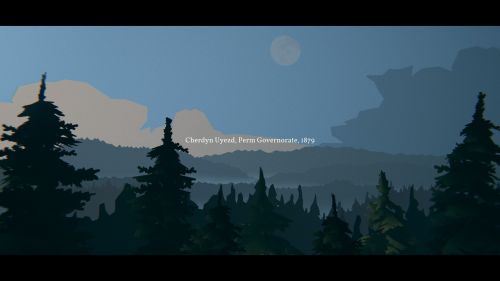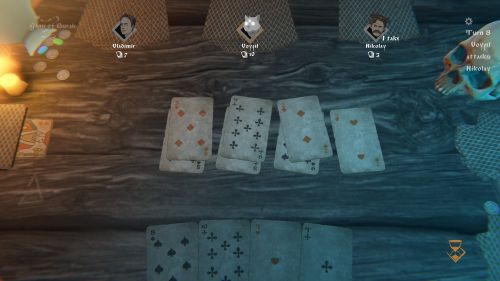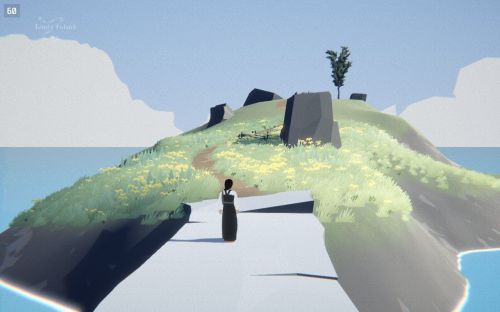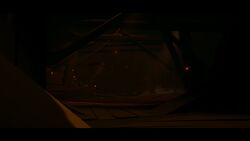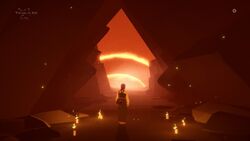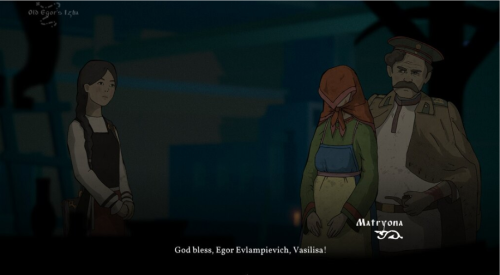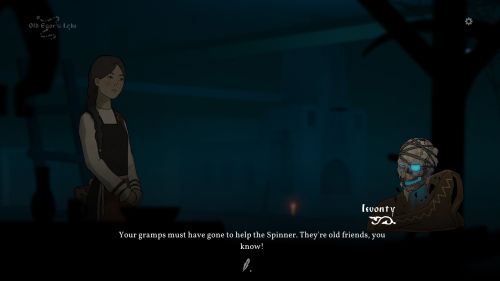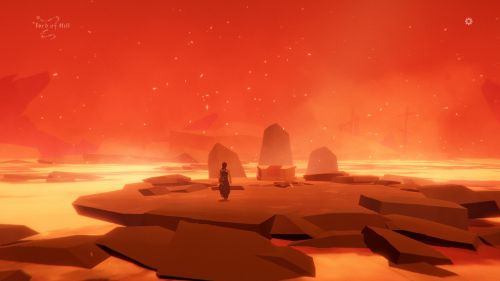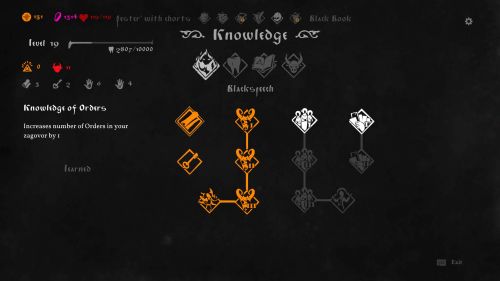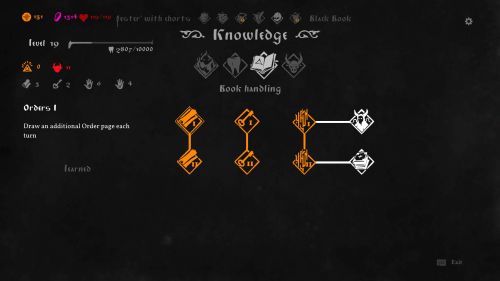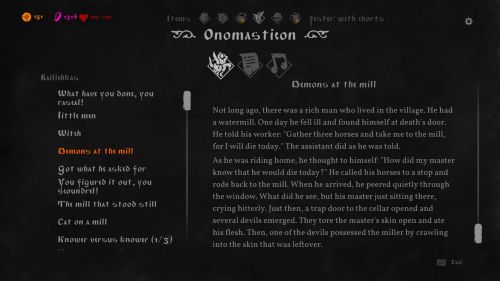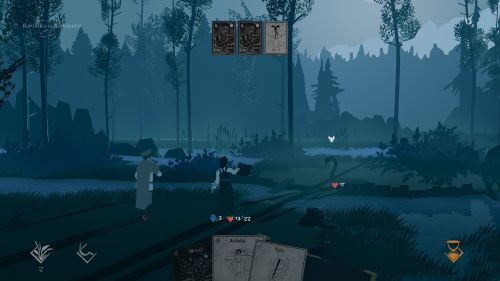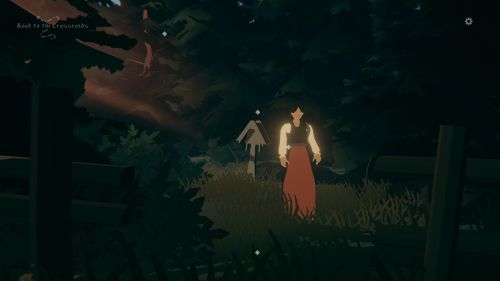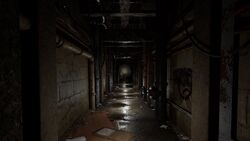RPG Codex Review: Black Book
RPG Codex Review: Black Book
Codex Review - posted by Infinitron on Sat 2 September 2023, 19:53:15
Tags: Black Book; Morteshka[Review by BosanskiSeljak]
Russian developer, Morteshka, released their first game in 2017; a short, 2D side-scrolling adventure. Four years later in the summer of 2021, “Black Book” would be released, building upon the themes and atmosphere only this time in a 30-40 hour RPG adventure through the villages of 19th century central Russia featuring card-based witch combat.
Seems like a perfect time to follow along through a story of witches, demons, Russian/Komi folklore, and enough Ruskiy деревенские to fill Bald & Bankrupt’s dream harem.
Vasilisia the Beautiful
The story of Black Book follows the preset character of Vasilisia, an adolescent girl adopted & raised by the local Koldun (Witch/Sorcerer) whose teachings have been rejected by her up to this point. That all changes when her betrothed unexpectedly passes away, leading her to do whatever it takes to bring him back. As logic dictates, she asks her adoptive Grandfather to teach her the life of a Koldun. He introduces her to the Black Book (oh, that’s why they call it that) as the only way to achieve what she so desperately wants.
This is where the story opens up, sending her out on a quest to find a way to break all 7 seals of the book, something her grandfather has failed to do in his decades as a Koldun.
Exploring the Russian Countryside
Once the game picks up, you’re given a surprisingly well thought out & fluid core story/gameplay loop. Your main base is your Grandfather’s Izba (traditional country home) which houses your Grandfather, any companions picked up along the way and is the place to manage everything related to your character. To top it off, you get the true Ruskiy roleplaying experience of playing Durak with a bunch of old men. Once the day starts, you will assume the role as the local Koldun, dealing with visiting peasants/villagers asking you to solve their problems.
Each adventure starts with a main goal related to the plot, usually through a visiting NPC at your Izba. It’s not terribly subtle considering your Grandfather will chime in and outright say there’s a chance you’ll run into something you need. However, you never know where the adventure will take you, or what to expect. You’re presented with a map highlighting where you need to go, and the stops along the way, including detours for hidden quests, combat & lore.
However, the pacing really shines here, with the game never letting you get too comfortable. The second any feeling of repetitiveness or boredom starts to creep up, you find yourself stuck somewhere unfamiliar, sometimes for an entire chapter. On top of story pacing, gameplay changes wildly as well. From typical countryside exploration, to solving a village mystery, to escorting caravans, all the way to dungeons. Another point for atmosphere in this regard, because making it back from your journey really emphasizes the feeling of being at home.
No good a time as this to point out this is not an open-world, walking simulator, sandbox exploration. You travel on the map, reach your location, and more often than not deal with your problems through dialogue unless you trigger a combat encounter. Experience gained, items & lore received; you can now go on your merry way.
Final destinations differ slightly from the formula, many times forcing you to deal with pseudo-dungeons. Most commonly you find yourself on a plot of land to navigate and investigate, eventually leading to a dungeon. This was not the main focus of the game, so it’s nothing special in and of itself. No 4-hour dungeon crawling for you! Consequently, their size and narrow focus avoids the sin many games make by keeping you locked in trash encounter hell for hours at a time between the same grey walls. Instead, the dungeon stays true to the exploration you experience on the surface with small side areas providing lore and occasional combat. Even better, the aesthetics vary wildly due to the variety of places you visit. Forests, beneath a lake, villages, underground lairs, even Hell itself all make an appearance. In some cases, these dungeons can last for days of game time, keeping you away from the Izba & your regular compatriots.
With this loop Morteshka nailed the pacing, providing the player with nearly 0 filler content. As a result, nearly 99% of the game time will be dialogue, combat, reading & managing gameplay elements. It’s not the best exploration, its not the most innovative, but it does the job very well for what it’s trying to achieve.
Friends, Enemies & Demons
Black Book sports a notably high number of important NPCs. Hand drawn character portraits and the voice acting sell you their standing in the world. You won’t meet 90lb valley girls wielding swords twice their weight and millennial hipsters on every street corner, that’s for sure. Villagers, city folk, indigenous people, monsters, demons, etc. no matter how irrelevant they may seem will circle back into the story one way or another, all contributing to the immaculate job Morteshka did keeping their setting authentic.
A tier above these NPCs are your potential companions. They come with their own backstories and companion quests, par for the course these days. This isn’t a character piece, so they aren’t very fleshed out, but it does enough. Although, this setting leans heavily on folklore, so you never know just who or what you can recruit to your party leading to some interesting circumstances. However, the best aspect showcased is the fact that they are not mandatory, you’re not given a dossier to recruit them, and they come along organically. In fact, you can outright miss them or screw them over if you don’t like them. Unfortunately, you can only bring one companion with you at a time. They unlock extra dialogue options and can be used for the completion of quests but have little impact on combat.
In the same vein are the few story important characters with their own agenda and decent foreshadowing. You know why they’re important, why they’re able to elevate themselves above the “normals” of the world, and they naturally fall into their role. Not once was there a jarring contrast between a character and the setting.
I cannot in good conscience finish this section without mentioning Vasilisia. Being forced into the role of an adolescent girl is not something I was looking forward to. However, she is written beautifully. The writing team nailed the subtleties of the mindset, attitude, tone, and overall personality of a young female character without going overboard. This applies to all younger characters, something I’ve rarely seen done so well. In fact, the last game I can say I’ve seen include & write all children/teenagers well is, funnily enough, A Plague Tale: Innocence.
Good vs. Evil
Your choices matter. No, not in a CYOA way. Not in an Age of Decadence way. Definitely not in a Mass Effect way. Black Book sits somewhere in the middle. Overall, reactivity is decent and you won’t be able to notice most of its shortcomings in a single playthrough. There are at least two paths through a situation, but that can range up to 4-5. It speaks volumes that even as a girl in rural Russia you can still find ways to screw with people, extort, blackmail, curse, and many options you wouldn’t expect given the tone of the game. Although, on replays or save scumming there are a couple of choices which seem important but have the exact same outcome. I wouldn’t have noticed if I didn’t reload, so playing through once would make me none the wiser.
The consequences of a preset character do come back to bite this game though. The premise itself is uninteresting compared to the setting. Even worse, they exacerbate the issue with random cuts to your character reminiscing about her lover randomly throughout the story without considering your actions up until then. I found it quite jarring, but I guess that’s my fault for choosing to play a game with a premade female character. Luckily you can headcanon that out of existence due to the nature of the end game. Speaking of ends…
Endings are tied to a morality system. Yes, this game has one, and there are 4 total ending states possible with minor variations based on subplots. Morality goes up or down based on choices and certain gameplay elements related to character building. Three of the endings are tied to the morality meter, two of which are available if you’re “evil” and the “golden, happy ending” if you are “good” with a fourth available no matter your choices. The game ends with a few slides and a voiced epilogue explaining your end state, its consequences, and the conclusion of some subplots. It’s not the best system considering how streamlined parts of it are, but it’s acceptable. The endings themselves have vastly different outcomes and tie up loose ends for your character and the story as a whole.
Power of a Witch
Character building is not groundbreaking but applies classic RPG elements much better than most recent games. There is a level cap at 20 which restricts you from maxing out all skill trees. As a matter of fact, maxing out your level will only allow you to unlock just over 50% of the skills.
The skills are divided into 4 sections: Blackspeech, Knowledgeability, Bookbinding, Demonology
1. Blackspeech abilities grant you better attacks, defence, and the ability to read your opponents’ moves. There are also two auto-learned perks which increase action points once you reach a specific level.
2. Knowledgeability is quite straight forward as well. The ability to use more items, have more active item slots, bartering and increasing the money you get from the peasants visiting your Izba.
3. Bookbinding encompasses all aspects of your book which are related to combat. You can build around drawing more cards per turn, essentially increasing RNG while also lowering the cost of creating new cards.
4. Demonology deals with demons, obviously. However, this section is unique as Demonology is tied to the plot. The nature of being a Koldun means demons are attracted to you and once they latch on, they never let go. Demons, like humans, need something to do so they torture you if they get bored. As a result, you need to send them on missions to terrorize the community or you are punished with considerable debuffs. These debuffs can make or break combat, especially in the early game. Thus, Demonology grants you the ability to send your demons on meaningless jobs or embrace the evil and learn what they like to do and increase your rewards.
All in all, the builds grant you a few different playstyles, whether it be a combat magician with great power, a knowledgeable witch maximizing her gains, or someone just trying to get by without terrorizing others. Additionally, each build ties in coherently with the lore, despite only one skill having plot relevance. It’s just a nice added bonus, but the small details matter.
This moves us into the game’s prestigious codex. Set in Russia with heavy folklore influence, the codex is essential. Many words, some I’ve used in this very review, will be completely unfamiliar to most people. Consequently, the game graces you with a definition if you highlight a word in conversation and adds it to your codex for a more in-depth explanation. Next to the encyclopedia is your Onomasticon which is full of Bailichka's (Tales/Stories), myths and all that folklore goodness you find on your adventures. The final section includes songs. These are beautifully composed pieces made for the game (of preexisting songs) which unlock if you stumble upon some rowdy teenagers having parties. Quite wholesome for a game with demons.
Now, this is good in and of itself for those who want to learn more about the setting, but both the encyclopedia & bailichka's are tied to gameplay. You WILL be quizzed in dialogue. Encounter a doubter who doesn’t believe a young girl like you can be knowledgeable? School him on some lore. Trying to solve the mystery of a suspected haunted area? Recall that Bailichka you unlocked or heard in dialogue. You’re basically a young Russian female Witcher. It’s a cool idea but is not implemented as well as it could be. The punishment for wrong answers is usually losing out on potential XP, with a few notable exceptions.
Zagovor’s & Lightning
Black Book is a turn-based deck-builder. Albeit, a decent one. The difference between deck building combat in Black Book, unlike many others, is it wasn’t forced. Cards are not introduced just for the novelty (and possibly the limited budget of an indie studio) but make sense within the setting. In combat, Vasilisia is creating spells in real time with orders and keys. Base level stats grant you two orders and one key each turn, which are filled in with “words” (i.e. the cards) that combine into a zagovor (spell).
Combat is relatively varied with a few choices of status effects, multipliers, specials, etc. providing you the ability to wipe the floor with anything if you play your cards right. Sadly, combat becomes too easy, erasing any strategy and removing the joy of building a deck. They try to remedy this through puzzle fights using a predetermined deck and a countdown before death which provides an extra challenge if you’re not familiar with all the cards. It just doesn’t happen often enough.
Despite mentioning good variety in the cards, the game still falls flat. Unfortunately, any challenge thrown at a player is easily avoided and deters experimentation past the first couple of chapters. You can breeze through every encounter after a few upgrades by brute forcing multiplier attack cards. Breaking a seal on the Black Book unlocks a new tier/theme of cards but testing them is not worth it unless they are a direct upgrade of the same damage type in your current deck.
It is possible for your deck to make an encounter difficult or even impossible. That’s a good start. Until I mention that this difficulty comes from an enemy’s defences. Defences come in the form of immunity to some, if not all types of damage except one. In this instance, you simply reload and switch to another specialized deck that hoards the damage type the enemy is not immune to. Now you’re back to destroying everything in 2-3 turns. I never touched a defensive build or mixed deck because there was no need to, it would just extend battle length.
Luckily, encounters are short. Just like exploration, combat does not waste your time. Combatfags need not apply. There isn’t much more to say about it. A DLC was released with a roguelike mode focused on combat which I haven’t tried, nor intend to.
Coincidentally, combat does highlight the biggest flaw of the game…
The Bad & The Ugly
Character portraits are well done, although a little too “anime” in some cases, and landscape shots of the surrounding area are acceptable. Nonetheless, 3D models are by far the most glaring issue. I’m not LARPing as a Graphixxxwhore either, they’re just terrible.
Nowhere is this more apparent than in combat and exploration. With the amazing music, lore, ambient sounds and storytelling, the atmosphere is single-handedly held back in this one regard. Not always, but enough to detract from the experience. In essence, Black Book would benefit if it was 2D.
No other glaring issues of such a proportion come to mind. Black Book was made with care. The game lets you choose subtitle and voice acting languages separately, a welcome addition, considering the Russian voice acting in Black Book is professionally done. Put that option into Gothic, please. Although, it’s not perfect. There are occasional issues in translation and a few examples where Russian subtitles are in place of English, burning the eyes of everyone in the West with Cyrillic text.
Final Thoughts
At its core, Black Book features an unexplored setting with an amazing atmosphere, great pacing, tons of lore and fun characters mixed with a mediocre premise and combat. Ultimately, all elements of this game create something greater than the sum of its parts, carried by its atmosphere and gameplay/story integration. Black Book is worth a try for those without an adverse reaction to card-based combat and have an initial interest in a Slavic folklore inspired setting. It’s a unique take on RPGs which sadly ends with Black Book because Mortheshka's next game is going back to the adventure route instead of refining and expanding the formula they built here.
Russian developer, Morteshka, released their first game in 2017; a short, 2D side-scrolling adventure. Four years later in the summer of 2021, “Black Book” would be released, building upon the themes and atmosphere only this time in a 30-40 hour RPG adventure through the villages of 19th century central Russia featuring card-based witch combat.
Seems like a perfect time to follow along through a story of witches, demons, Russian/Komi folklore, and enough Ruskiy деревенские to fill Bald & Bankrupt’s dream harem.
Vasilisia the Beautiful
The story of Black Book follows the preset character of Vasilisia, an adolescent girl adopted & raised by the local Koldun (Witch/Sorcerer) whose teachings have been rejected by her up to this point. That all changes when her betrothed unexpectedly passes away, leading her to do whatever it takes to bring him back. As logic dictates, she asks her adoptive Grandfather to teach her the life of a Koldun. He introduces her to the Black Book (oh, that’s why they call it that) as the only way to achieve what she so desperately wants.
This is where the story opens up, sending her out on a quest to find a way to break all 7 seals of the book, something her grandfather has failed to do in his decades as a Koldun.
Exploring the Russian Countryside
Once the game picks up, you’re given a surprisingly well thought out & fluid core story/gameplay loop. Your main base is your Grandfather’s Izba (traditional country home) which houses your Grandfather, any companions picked up along the way and is the place to manage everything related to your character. To top it off, you get the true Ruskiy roleplaying experience of playing Durak with a bunch of old men. Once the day starts, you will assume the role as the local Koldun, dealing with visiting peasants/villagers asking you to solve their problems.
Each adventure starts with a main goal related to the plot, usually through a visiting NPC at your Izba. It’s not terribly subtle considering your Grandfather will chime in and outright say there’s a chance you’ll run into something you need. However, you never know where the adventure will take you, or what to expect. You’re presented with a map highlighting where you need to go, and the stops along the way, including detours for hidden quests, combat & lore.
However, the pacing really shines here, with the game never letting you get too comfortable. The second any feeling of repetitiveness or boredom starts to creep up, you find yourself stuck somewhere unfamiliar, sometimes for an entire chapter. On top of story pacing, gameplay changes wildly as well. From typical countryside exploration, to solving a village mystery, to escorting caravans, all the way to dungeons. Another point for atmosphere in this regard, because making it back from your journey really emphasizes the feeling of being at home.
No good a time as this to point out this is not an open-world, walking simulator, sandbox exploration. You travel on the map, reach your location, and more often than not deal with your problems through dialogue unless you trigger a combat encounter. Experience gained, items & lore received; you can now go on your merry way.
Final destinations differ slightly from the formula, many times forcing you to deal with pseudo-dungeons. Most commonly you find yourself on a plot of land to navigate and investigate, eventually leading to a dungeon. This was not the main focus of the game, so it’s nothing special in and of itself. No 4-hour dungeon crawling for you! Consequently, their size and narrow focus avoids the sin many games make by keeping you locked in trash encounter hell for hours at a time between the same grey walls. Instead, the dungeon stays true to the exploration you experience on the surface with small side areas providing lore and occasional combat. Even better, the aesthetics vary wildly due to the variety of places you visit. Forests, beneath a lake, villages, underground lairs, even Hell itself all make an appearance. In some cases, these dungeons can last for days of game time, keeping you away from the Izba & your regular compatriots.
With this loop Morteshka nailed the pacing, providing the player with nearly 0 filler content. As a result, nearly 99% of the game time will be dialogue, combat, reading & managing gameplay elements. It’s not the best exploration, its not the most innovative, but it does the job very well for what it’s trying to achieve.
Friends, Enemies & Demons
Black Book sports a notably high number of important NPCs. Hand drawn character portraits and the voice acting sell you their standing in the world. You won’t meet 90lb valley girls wielding swords twice their weight and millennial hipsters on every street corner, that’s for sure. Villagers, city folk, indigenous people, monsters, demons, etc. no matter how irrelevant they may seem will circle back into the story one way or another, all contributing to the immaculate job Morteshka did keeping their setting authentic.
A tier above these NPCs are your potential companions. They come with their own backstories and companion quests, par for the course these days. This isn’t a character piece, so they aren’t very fleshed out, but it does enough. Although, this setting leans heavily on folklore, so you never know just who or what you can recruit to your party leading to some interesting circumstances. However, the best aspect showcased is the fact that they are not mandatory, you’re not given a dossier to recruit them, and they come along organically. In fact, you can outright miss them or screw them over if you don’t like them. Unfortunately, you can only bring one companion with you at a time. They unlock extra dialogue options and can be used for the completion of quests but have little impact on combat.
In the same vein are the few story important characters with their own agenda and decent foreshadowing. You know why they’re important, why they’re able to elevate themselves above the “normals” of the world, and they naturally fall into their role. Not once was there a jarring contrast between a character and the setting.
I cannot in good conscience finish this section without mentioning Vasilisia. Being forced into the role of an adolescent girl is not something I was looking forward to. However, she is written beautifully. The writing team nailed the subtleties of the mindset, attitude, tone, and overall personality of a young female character without going overboard. This applies to all younger characters, something I’ve rarely seen done so well. In fact, the last game I can say I’ve seen include & write all children/teenagers well is, funnily enough, A Plague Tale: Innocence.
Good vs. Evil
Your choices matter. No, not in a CYOA way. Not in an Age of Decadence way. Definitely not in a Mass Effect way. Black Book sits somewhere in the middle. Overall, reactivity is decent and you won’t be able to notice most of its shortcomings in a single playthrough. There are at least two paths through a situation, but that can range up to 4-5. It speaks volumes that even as a girl in rural Russia you can still find ways to screw with people, extort, blackmail, curse, and many options you wouldn’t expect given the tone of the game. Although, on replays or save scumming there are a couple of choices which seem important but have the exact same outcome. I wouldn’t have noticed if I didn’t reload, so playing through once would make me none the wiser.
The consequences of a preset character do come back to bite this game though. The premise itself is uninteresting compared to the setting. Even worse, they exacerbate the issue with random cuts to your character reminiscing about her lover randomly throughout the story without considering your actions up until then. I found it quite jarring, but I guess that’s my fault for choosing to play a game with a premade female character. Luckily you can headcanon that out of existence due to the nature of the end game. Speaking of ends…
Endings are tied to a morality system. Yes, this game has one, and there are 4 total ending states possible with minor variations based on subplots. Morality goes up or down based on choices and certain gameplay elements related to character building. Three of the endings are tied to the morality meter, two of which are available if you’re “evil” and the “golden, happy ending” if you are “good” with a fourth available no matter your choices. The game ends with a few slides and a voiced epilogue explaining your end state, its consequences, and the conclusion of some subplots. It’s not the best system considering how streamlined parts of it are, but it’s acceptable. The endings themselves have vastly different outcomes and tie up loose ends for your character and the story as a whole.
Power of a Witch
Character building is not groundbreaking but applies classic RPG elements much better than most recent games. There is a level cap at 20 which restricts you from maxing out all skill trees. As a matter of fact, maxing out your level will only allow you to unlock just over 50% of the skills.
The skills are divided into 4 sections: Blackspeech, Knowledgeability, Bookbinding, Demonology
1. Blackspeech abilities grant you better attacks, defence, and the ability to read your opponents’ moves. There are also two auto-learned perks which increase action points once you reach a specific level.
2. Knowledgeability is quite straight forward as well. The ability to use more items, have more active item slots, bartering and increasing the money you get from the peasants visiting your Izba.
3. Bookbinding encompasses all aspects of your book which are related to combat. You can build around drawing more cards per turn, essentially increasing RNG while also lowering the cost of creating new cards.
4. Demonology deals with demons, obviously. However, this section is unique as Demonology is tied to the plot. The nature of being a Koldun means demons are attracted to you and once they latch on, they never let go. Demons, like humans, need something to do so they torture you if they get bored. As a result, you need to send them on missions to terrorize the community or you are punished with considerable debuffs. These debuffs can make or break combat, especially in the early game. Thus, Demonology grants you the ability to send your demons on meaningless jobs or embrace the evil and learn what they like to do and increase your rewards.
All in all, the builds grant you a few different playstyles, whether it be a combat magician with great power, a knowledgeable witch maximizing her gains, or someone just trying to get by without terrorizing others. Additionally, each build ties in coherently with the lore, despite only one skill having plot relevance. It’s just a nice added bonus, but the small details matter.
This moves us into the game’s prestigious codex. Set in Russia with heavy folklore influence, the codex is essential. Many words, some I’ve used in this very review, will be completely unfamiliar to most people. Consequently, the game graces you with a definition if you highlight a word in conversation and adds it to your codex for a more in-depth explanation. Next to the encyclopedia is your Onomasticon which is full of Bailichka's (Tales/Stories), myths and all that folklore goodness you find on your adventures. The final section includes songs. These are beautifully composed pieces made for the game (of preexisting songs) which unlock if you stumble upon some rowdy teenagers having parties. Quite wholesome for a game with demons.
Now, this is good in and of itself for those who want to learn more about the setting, but both the encyclopedia & bailichka's are tied to gameplay. You WILL be quizzed in dialogue. Encounter a doubter who doesn’t believe a young girl like you can be knowledgeable? School him on some lore. Trying to solve the mystery of a suspected haunted area? Recall that Bailichka you unlocked or heard in dialogue. You’re basically a young Russian female Witcher. It’s a cool idea but is not implemented as well as it could be. The punishment for wrong answers is usually losing out on potential XP, with a few notable exceptions.
Zagovor’s & Lightning
Black Book is a turn-based deck-builder. Albeit, a decent one. The difference between deck building combat in Black Book, unlike many others, is it wasn’t forced. Cards are not introduced just for the novelty (and possibly the limited budget of an indie studio) but make sense within the setting. In combat, Vasilisia is creating spells in real time with orders and keys. Base level stats grant you two orders and one key each turn, which are filled in with “words” (i.e. the cards) that combine into a zagovor (spell).
Combat is relatively varied with a few choices of status effects, multipliers, specials, etc. providing you the ability to wipe the floor with anything if you play your cards right. Sadly, combat becomes too easy, erasing any strategy and removing the joy of building a deck. They try to remedy this through puzzle fights using a predetermined deck and a countdown before death which provides an extra challenge if you’re not familiar with all the cards. It just doesn’t happen often enough.
Despite mentioning good variety in the cards, the game still falls flat. Unfortunately, any challenge thrown at a player is easily avoided and deters experimentation past the first couple of chapters. You can breeze through every encounter after a few upgrades by brute forcing multiplier attack cards. Breaking a seal on the Black Book unlocks a new tier/theme of cards but testing them is not worth it unless they are a direct upgrade of the same damage type in your current deck.
It is possible for your deck to make an encounter difficult or even impossible. That’s a good start. Until I mention that this difficulty comes from an enemy’s defences. Defences come in the form of immunity to some, if not all types of damage except one. In this instance, you simply reload and switch to another specialized deck that hoards the damage type the enemy is not immune to. Now you’re back to destroying everything in 2-3 turns. I never touched a defensive build or mixed deck because there was no need to, it would just extend battle length.
Luckily, encounters are short. Just like exploration, combat does not waste your time. Combatfags need not apply. There isn’t much more to say about it. A DLC was released with a roguelike mode focused on combat which I haven’t tried, nor intend to.
Coincidentally, combat does highlight the biggest flaw of the game…
The Bad & The Ugly
Character portraits are well done, although a little too “anime” in some cases, and landscape shots of the surrounding area are acceptable. Nonetheless, 3D models are by far the most glaring issue. I’m not LARPing as a Graphixxxwhore either, they’re just terrible.
Nowhere is this more apparent than in combat and exploration. With the amazing music, lore, ambient sounds and storytelling, the atmosphere is single-handedly held back in this one regard. Not always, but enough to detract from the experience. In essence, Black Book would benefit if it was 2D.
No other glaring issues of such a proportion come to mind. Black Book was made with care. The game lets you choose subtitle and voice acting languages separately, a welcome addition, considering the Russian voice acting in Black Book is professionally done. Put that option into Gothic, please. Although, it’s not perfect. There are occasional issues in translation and a few examples where Russian subtitles are in place of English, burning the eyes of everyone in the West with Cyrillic text.
Final Thoughts
At its core, Black Book features an unexplored setting with an amazing atmosphere, great pacing, tons of lore and fun characters mixed with a mediocre premise and combat. Ultimately, all elements of this game create something greater than the sum of its parts, carried by its atmosphere and gameplay/story integration. Black Book is worth a try for those without an adverse reaction to card-based combat and have an initial interest in a Slavic folklore inspired setting. It’s a unique take on RPGs which sadly ends with Black Book because Mortheshka's next game is going back to the adventure route instead of refining and expanding the formula they built here.





